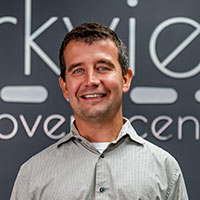In the U.S., substance abuse in young adults is a widespread concern. That’s true because young people in this age group are among the most likely to be adversely affected. Unfortunately, many young adults don’t recognize the potential consequences of their drug or alcohol use. This means that they may not seek out substance abuse treatment when it is needed.
The good news is that effective help is available for young adults with drug or alcohol addiction issues. However, the nature of that help may sometimes differ from the steps taken to help older adults. For that reason, younger people tend to do best in addiction treatment programs that address their specific needs. Arkview Recovery Center features substance abuse treatment options geared toward this age group. Reach out today to more about the best options to address substance abuse in young adults by calling 717.744.0756.
Aspects of Substance Abuse in Young Adults
Young adults face some unique substance abuse risks. Perhaps the single biggest factor is brain development. Research shows that the human brain doesn’t complete its development until you are in your mid-twenties. Crucially, the last area to develop is the part of the brain responsible for decision-making and judgment.
Substance abuse in young adults can disrupt the normal process of brain development. This means that affected people may:
- Never develop their full ability to think clearly or make sound decisions
- Not gain enough control over their impulsive urges
- Participate more often than usual in risky or dangerous behaviors
There is another major effect of substance abuse in young adults. Namely, it increases the risk of getting addicted to drugs or alcohol. The earlier you start using one of these substances, the greater the chance that addiction will eventually occur.
Substance Abuse Programs Tend to Work Best?
Addiction treatment programs for young adults at Arkview Recovery may sometimes include medication. However, the main program option is usually one or more kinds of behavioral therapy. Specific types of this therapy may include:
- CBT or cognitive-behavioral therapy
- MET or motivational enhancement therapy
- CM or contingency management therapy
Each therapy supports young adults in its own way. For example, CBT helps you learn how to recognize thoughts and feelings that promote substance abuse. It also helps you develop alternative ways of thinking and feeling that don’t have this effect. In different ways, both CM and MET help increase your desire to stay active in your treatment.
Family therapy can also be vital for addressing substance abuse in young adults. That’s especially true for people in this age group who live with their parents or siblings. Family therapy helps you explore things in your family dynamic that may increase substance abuse risks. It also teaches you ways to develop a healthier, more supportive home environment.
Settings for the Treatment of Young Adults
Like older adults, young adults may benefit from multiple types of addiction treatment programs. Potential options include outpatient programs, intensive outpatient programs, and Residential Rehab. They also include something called partial hospitalization.
What determines the best option for young adults? The main factor is the seriousness of your drug or alcohol problems. People with milder symptoms may do well in an outpatient program. However, more heavily affected people may need intensive outpatient care or partial hospitalization. Young adults with severe or even moderate symptoms may need an inpatient program.
Help a Young Adult in Your Life Overcome Substance Abuse at Arkview Recovery
Arkview Recovery will help you answer any questions you may have about young-adult treatment. We also feature family therapy and other options known to support the recovery of people in this age group. In addition, Arkview offers outpatient, intensive outpatient, partial hospitalization, and inpatient programs. No matter what level of treatment you need, we will help you or your loved one recover. Call 717.744.0756 today for more information, or contact us through our online form.

Kyle is Lead Therapist at Arkview Recovery Center. He holds a Master of Social Work degree from Temple University and is a Licensed Clinical Social Worker. He has years of experience working directly with individuals who suffer from addiction and mental health disorders. Being in long term recovery himself, Kyle is very passionate about the recovery process. He is heavily involved in the local recovery community in which he enjoys his commitments to service and giving back. His specialty is in group therapy and developing clinical staff. Kyle brings to Arkview a holistic approach to recovery, specializing in mindfulness, reality therapy, and solution-focused therapy.







